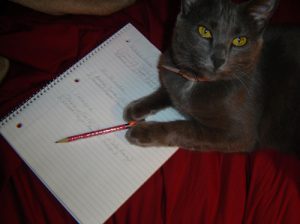

Month: June 2016
Welcome to the Busybird blog, where you can find helpful articles, updates, industry news and more. Make sure you stay up to date by signing up to our newsletter below.
Your Publishing Journey
June 30, 2016Years ago, self-published books looked self-published. Content was questionable, paper stock was this thick white stuff, and the finished product looked like it had been slapped together with a glue-gun in somebody’s garage.
Technology has advanced now so that you can release a book that’s indistinguishable from books commercial publishers are releasing. You have access to the same printers they use, as well as the same distributors. There’s PR, but a publisher – even a big publisher – will (and can) only do so much, so ultimately this is your responsibility. That just leaves you the duty of finding a good editor to help you develop your manuscript, a designer to lay it out and design the cover, and somebody to proofread it.
Some will frown. If you’re self-publishing, then it’s only because you aren’t good enough to land a publishing deal. In some cases, that might be right. But there’s plenty of examples where publishers have invested big in an author only to see their books flop, and rejected authors who’ve been picked up elsewhere and gone onto great success. Publishers aren’t infallible, so if they’ve passed over a book, it’s not always necessarily because the book’s not good enough. The prize example is Harry Potter, which was rejected umpteen times. Look at the phenomenon that’s become.
Arguably, self-publishing still generates stigma due to partnership publishers. Partnership publishers flatter authors regardless of the quality of their work, encourage them to publish (replete with exorbitant print runs), and charge extravagantly through the process. The ‘partnership’ suggests that the publisher and the author share the costs (and thus the risks), but it’s doubtful the publisher invests a cent of their own money. Worst of all, some partnership publishers masquerade that their model is the traditional route. Inexperienced authors don’t know any better, and their judgement is compromised by the excitement that their work has been ‘accepted’ for publication. Thus they happily fork out their money.
We all want the validation of being accepted and published by a commercial publisher. In a way, it becomes about branding, about being told by an industry staple that your work is good enough to be out there. But if you have a little faith in your manuscript, and the willingness to invest in the right people to make it the best it can be, self-publishing is becoming a practical alternative – and one that will grow as Print on Demand becomes more and more accessible.
Andy Weir’s The Martian and Lisa Genova’s Still Alice are two examples of books that were self-published, and which have experienced huge success – Still Alice was adapted to the stage, and then became a mainstream Hollywood movie starring Julianne Moore and Alec Baldwin. The Martian was adapted for the screen by none other than Hollywood legend Ridley Scott (Gladiator, Bladerunner, Alien, just to name a few of his credits), and starred Matt Damon and Jessica Chastain.
So who’s to query the quality behind a book that’s been self-published?
Or its commercial viability?
Or, simply, it’s worth to the publishing industry?
Time to Assess
June 23, 2016 My book is going to be a bestseller!
My book is going to be a bestseller!
We hear that more than anything.
Why’s it going to be a bestseller? Because it’s such a brilliant idea? Because it’s so beautifully written? Because you’re going to will it to be so?
You know what? You’re not the only one to think these things.
And if it were as easy as all this, publishers – with all their resources – would release nothing but bestseller after bestseller.
They don’t, because the reality is lots of brilliant stories and beautifully-written books disappear into obscurity. Others never see publication. There’s no certified predictor as to what makes a bestseller. And it’s folly to think that the potential behind your concept is going to win over an audience. The best you can do – and the formula that publishers follow – is to give your book the very best chance of succeeding by making it the best that it can be.
One of the means to achieve this – and a much more inexpensive alternative to a structural edit – is a manuscript assessment.
The simplest way to think of a manuscript assessment is that it’s a comprehensive book report of your manuscript.
You’ll get a breakdown that looks at the following things:
- Structure: does your manuscript evolve logically? Even if it has some innovative structure – e.g. flipping between timelines, or rotating through an assortment of characters – is it cohesive? Are there areas it needs greater development? Or where information could be dealt with earlier/later? Structure looks at the way the story is delivered and whether it’s effective.
- Plot/Content: a fiction assessment would examine plot, whilst a nonfiction assessment would explore the content. Are these sound? Within the manuscript, how do these unfold and function? Are they coherent? Are they convincing? Will the reader invest in them?
- Characters: an examination of the characters and how well they work. Do they need to be more dimensional? Are they rounded enough? Are they believable? Are they motivated? Are there too many characters?
- Your Writing: a look at things like your use of Point of View (POV), clarity of expression, grammar, your use of tense, etc. The assessment won’t list every specific instance where something is wrong or needs work, but will give you examples so you know what to look out for when you revise.
- Your Punctuation: as with the above, you will be provided examples of things to look out for which you can address through revision.
- Title: does your title fit your manuscript?
I don’t need any of this – my [PARTNER/PARENT/SON OR DAUGHTER/FRIEND/FRIEND WHO IS A TEACHER/NEIGHBOUR/DOG] read it, and they think it’s great!
Well, this might be the case, but how comprehensive was the feedback? Was it as extensive as, ‘It’s good’ or something like that? How constructive was it? Were these readers in any way biased (one way or another) due to their relationship with you? Relying on people with whom you have any sort of relationship is always fraught with risk.
A fresh perspective from somebody who
- has no connection to you
- is trained to look at writing analytically
- does this for a living
is often the best way of identifying what does work and what doesn’t work in your manuscript.
However, before you do this, be prepared to hear anything. Lower your expectations. We all have them. We all want to believe that our manuscript is great! That it’s going to blow everybody over! That it is going to be the next bestseller! But even authors who’ve written umpteen drafts and delivered their manuscript to a publisher are going to get extensive structural feedback about what they need to address in revision. You cannot go into this thinking your manuscript is infallible, because you’re always going to be disappointed.
So if you’ve written a manuscript and are thinking about sending it out into the world, STOP. Do you really think that your manuscript is the best manuscript it could be? Or is it that you’re so immersed in it, you need fresh eyes to identify what you should be looking at next?
If that’s the case, a manuscript assessment could be the way to go.
Discourtesy
June 16, 2016 If a publisher asks you to submit three chapters, a synopsis, a cover letter, and to format it all in purple Wingdings, that’s what you do. The publisher sets the rules. You’re required to show your respect for them, as well as showcase your own professionalism, by doing exactly as they ask. Don’t believe your brilliance will floor them and convince them to overlook the fact you’ve decided to send them ten chapters formatted in Comic Sans.
If a publisher asks you to submit three chapters, a synopsis, a cover letter, and to format it all in purple Wingdings, that’s what you do. The publisher sets the rules. You’re required to show your respect for them, as well as showcase your own professionalism, by doing exactly as they ask. Don’t believe your brilliance will floor them and convince them to overlook the fact you’ve decided to send them ten chapters formatted in Comic Sans.
If a journal accepts your story, then three days later changes their mind and rejects you (and this has happened), grin and bear it. You have every right to be frustrated. You have every right to be angry. You have every right to rant privately to your friends that this journal is full of imbeciles who are grossly incompetent. But in your interaction with the journal, remain polite and respectful.
There’s no need for discourtesy, irrespective of the circumstances. It’s not going to get you anywhere and will just foster resentment. Also, the Australian publishing industry is small. Piss off the wrong person, and you could develop a name for yourself. So learn to handle adversity with dignity and graciousness.
This is something you should apply regardless of the circumstances. Unfortunately, in our experience, it hasn’t always been the case. We’ve had authors who’ve been rude and aggressive, who’ve behaved with a sense of entitlement, and as if we exist only to serve their whims and respond to their tantrums. One author was outright vitriolic, even though all her issues were a result of her lack of communication with her own PA, rather than anything we’d done. How this woman could operate in a professional capacity is mind-boggling.
We have our own etiquette – whether you’re submitting to one of our anthologies, attending one of our workshops, or wanting to self-publish. We establish parameters, which we ask clients to work within, because it gives them the structure to compartmentalise their project, as well as helps put resources in our hands with a methodology that ensures we can serve our clients’ needs and produce the best outcome possible. That all sounds terribly wordy: simply, we ask you to do things our way because we know what we’re doing, and our way makes it easier for everybody in the long run. Other publishers and journals will be the same. Everybody has their own way of doing things.
You’re going to encounter problems, hiccups, and detours. That’s a reality of life, let alone the publishing industry. The people you’re dealing with might have seemingly strange guidelines, or they might make mistakes. Again, that’s something you’re going to encounter in life. But don’t think blowing up is going to change anything. It’s likelier to produce the opposite outcome.
Think about how you deal with adversity.
Think about how you deal with the everyday.
And ask yourself if you need to do anything differently.
Off the Page
June 9, 2016 When you’re writing a story, often the question is what should you and shouldn’t you include? Many of us would love to include everything. But this doesn’t necessarily make for entertaining reading. A newspaper editor once told me a fact I’d left out (of an article I was writing) was interesting, but added nothing to the overall story, so it was a good choice to leave it out. This is something you need to ask yourself: is what you’re including adding to the overall story?
When you’re writing a story, often the question is what should you and shouldn’t you include? Many of us would love to include everything. But this doesn’t necessarily make for entertaining reading. A newspaper editor once told me a fact I’d left out (of an article I was writing) was interesting, but added nothing to the overall story, so it was a good choice to leave it out. This is something you need to ask yourself: is what you’re including adding to the overall story?
Now that can happen in a number of ways. The information might drive the plot, or help with characterisation or setting. Some might argue that any extra information might help with those things – additional information, the argument might be, could offer depth. We could throw in that the protagonist, as a child, owned a three-legged dog. Interesting, no? But here’s the question: how does it contribute to the story? What is it telling us about that character that we need to know? Is it providing context to the decisions they make or they person they’ve become? If it doesn’t have any bearing whatsoever, it’s most likely unnecessary. A better way to think about this if you cut something, and the reader wouldn’t notice it’s been cut – that they don’t feel they’re missing anything – then it doesn’t belong there.
Every sentence should drive the story forward. Each sentence should evolve from the one prior, unless you’re going after something stylistically jarring, e.g. two friends having coffee at a café, when a car accident occurs outside. In this case, there’s no direct evolution from one scene to the next. Instead, we use the abrupt shift to interrupt the established scene. But if that’s not your intent (and, honestly, stylistically this is a device you’d use sparingly), think about how your story unfolds, and the framework of language you use to construct that.
And, in doing that, keep also in mind what you’re not including. As an editor, one of the things I encounter most is authors leaving pivotal scenes off the page. Instead, we get characters referencing something has happened (either in narrative, internalisation, or dialogue), or characters functioning on the crest of some momentous change, yet which we don’t see.
Let’s take the first example: if the characters are referencing something important that happened which we didn’t get to see (as readers), ask yourself why hasn’t that been included? Ask yourself why you’ve decided it’s of greater significance to show people talking about the scene rather than showing the scene itself. There might be legitimate reasons, e.g. in a detective story, the detective might talk to witnesses, who are telling him about a crime. Usually, though, we’d want the big scenes to play out in front of our eyes.
In the second example, a character might’ve experienced an epiphany – only we don’t see the epiphany itself, but pick up after they’ve decided to make some meaningful change in their life. But isn’t the epiphany important? Shouldn’t we see that transformative journey that takes our character from who they were to who they decide they want to be? Shouldn’t the reader be put in that character’s shoes so they can experience their metamorphosis?
Conflict drives storytelling – not conflict in regards to characters arguing or fighting or trying to kill one another. But conflict that compels change within the character and tiers their arc over the course of the story. We all encounter it in our everyday lives. Obstacles compel us to make decisions. Do we do this or do we do that? This drives us to make the decisions we do. Our characters should face the same choices.
Think about those moments you’re not sharing with us, those moments that exist either between chapters, or simply between pages. If you can map that there is a BEFORE in one case and an AFTER in the next, but we don’t witness anything between, ask yourself why you haven’t included that. There might be a justifiable reason. Or it might be you’ve skimmed to get to where you want.

